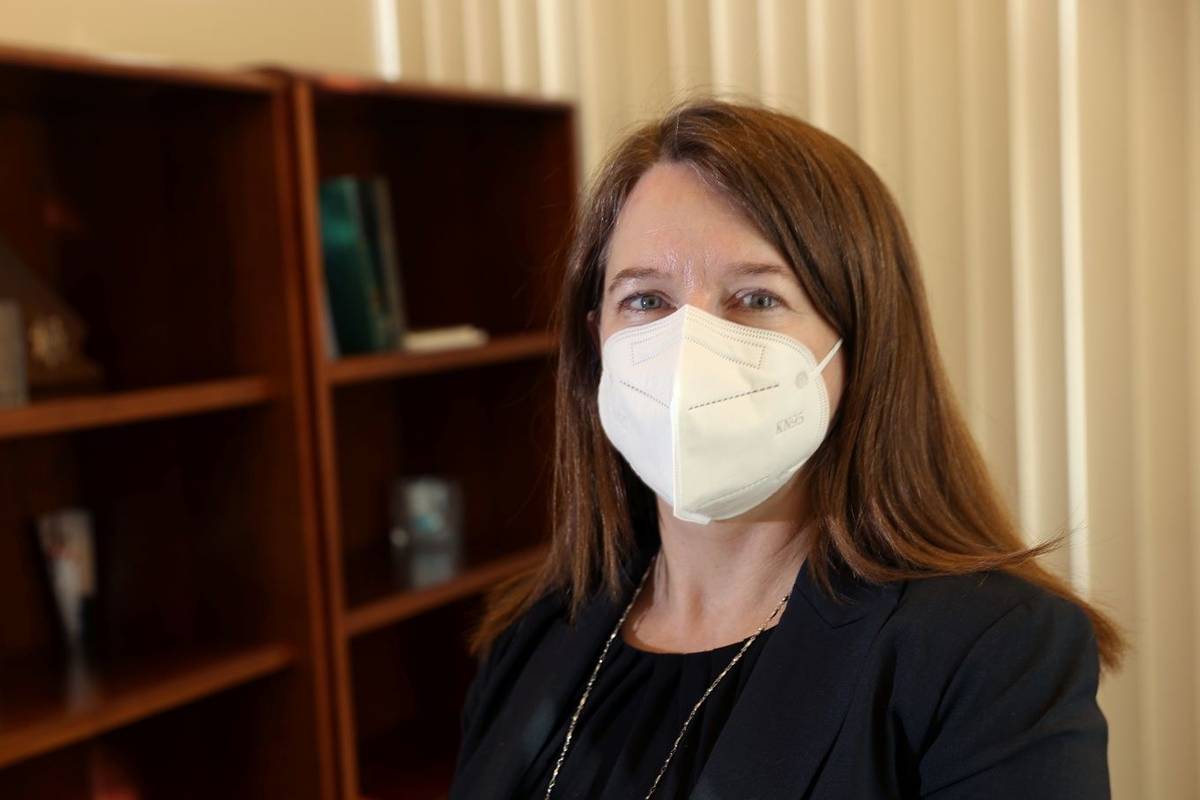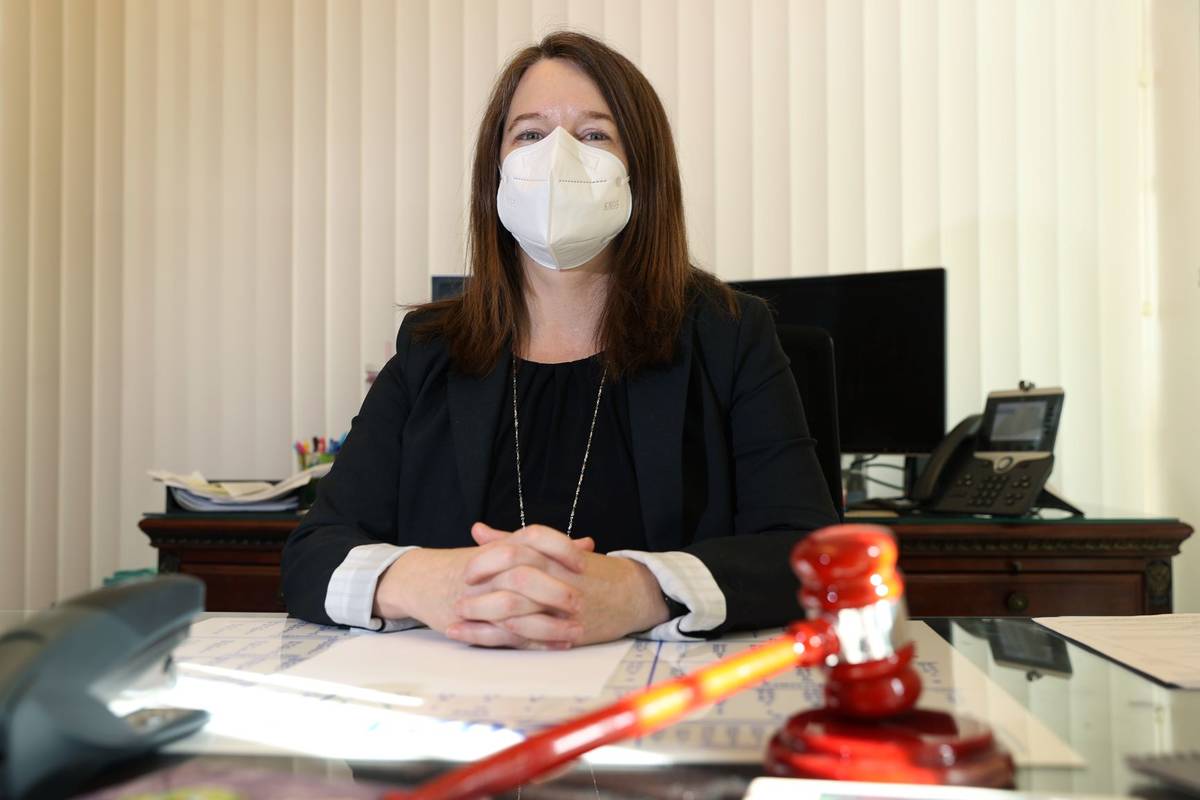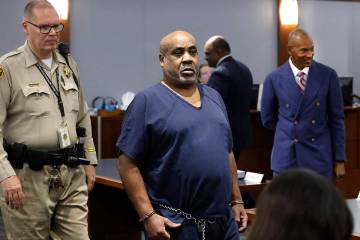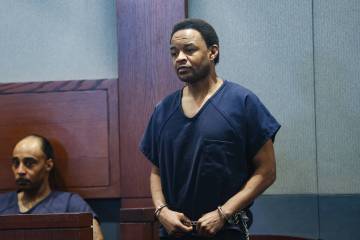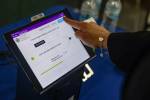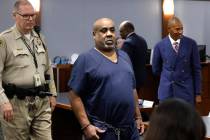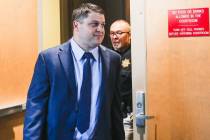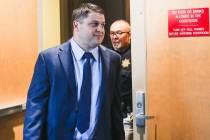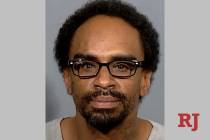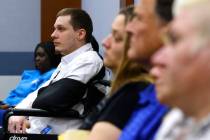Pandemic strikes DUI court program in Clark County
While the 8th Judicial District Court’s felony DUI program has helped many people avoid prison and stay sober, participants are struggling to pay for their treatment and monitoring because of the coronavirus pandemic.
“The pandemic has greatly affected our program because unlike other programs, the money all comes from the participants,” said Khristie Cury, a coordinator for the specialty court in Clark County.
At any given time there are about 300 people in the program, which lasts three to five years and allows participants to convert their felony DUI conviction to a misdemeanor. Participants need to maintain and attend therapy appointments, weekly support groups, court dates and random drug testing and pass breathalyzer tests, all of which they have to pay for, Cury said.
“These programs are much harder than doing jail time or prison time; (participants) are forced to look at themselves,” she said. “In my opinion, I think these programs save lives.”
Defendants have to apply to the specialty court, and they’re eligible only if they’re on a third DUI conviction in seven years. Those involved in crashes that result in death or serious injury are not eligible for the program.
Like all specialty courts, the DUI program could always use more resources and financial aid, said Hearing Master Shannon Wittenberger, who oversees the court hearings for the program.
During the pandemic, Wittenberger said, she has spent every week talking with participants who are struggling with their mental health or who have to decide between paying for their children’s food or drug tests.
“People are worried; they’re scared,” she said, later adding that “the good thing, I think, is they are in the program, so they have that support.”
Grants help with costs
The state Office of Traffic Safety has awarded grants to the program for the past two years, with the most recent $30,000 grant announced in late October. After 33 percent of nearly 300 program participants were laid off after the March shutdown and were struggling to make payments, the office gave an additional $27,000 to the specialty court to pay for drug testing for those who can’t afford it.
Participants who are unable to meet payments are put on notice but given leniency if they have been laid off or are suffering other financial hardships, Cury said.
“We want to make sure that the participation in those programs are successful, and the financial hardship is a part of it,” said Andrew Bennett, a spokesman for the Office of Traffic Safety.
Many program participants are in the service industry and were more likely to be laid off during the pandemic, program coordinator Daniela Botal said. According to the court’s website, the program costs an estimated $550 a month.
While the cost is high, Botal said, the time is worth it for the participants, many of whom are dealing with trauma and receiving counseling for the first time.
“The whole goal of this program is to really help to reduce the recidivism rate by giving the clients the proper counseling and stability,” Botal said.
Increase in DUI arrests
The pandemic appears to have led to an increase in DUI arrests, Bennett said.
The Office of Traffic Safety also oversees the DUI Strike Team, which is made up of Metropolitan Police Department officers and Nevada Highway Patrol troopers who focus only on DUI arrests. As of the first week of December, there was a 30 percent increase in the team’s arrests from the same time last year, Bennett said. Some of the increase can be attributed to an additional team member, but that is not enough to offset all of the arrests, he said.
April and May were the months with the highest number of arrests, when the spring coronavirus spike caused business shutdowns and layoffs.
Wittenberger said that because the pandemic halted court hearings for a time, the number of program participants slightly decreased. But as court hearings are starting up again, that could quickly reverse.
Wittenberger said many are happy they’re able to participate in the program to not only avoid prison but to change their lives.
“A lot of them say to me, ‘I’m just so glad I never hurt anyone,’ ” she said.
Contact Katelyn Newberg at knewberg@reviewjournal.com or 702-383-0240. Follow @k_newberg on Twitter.



